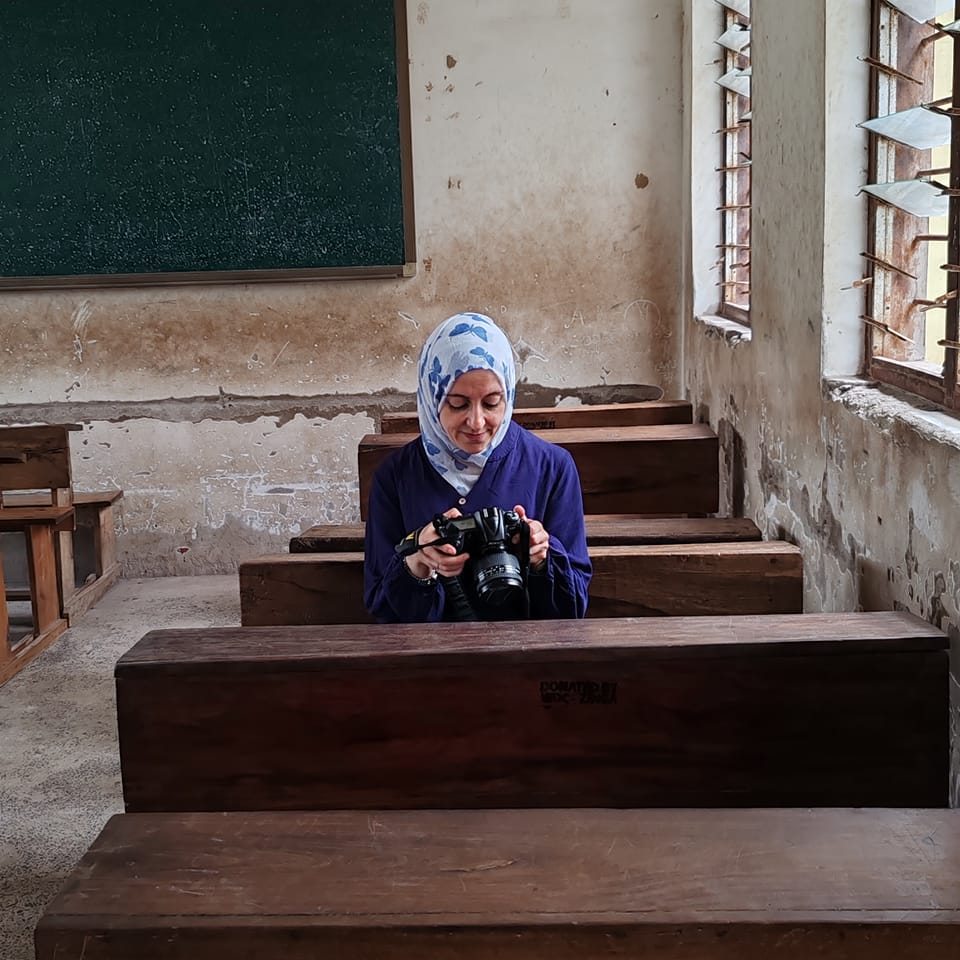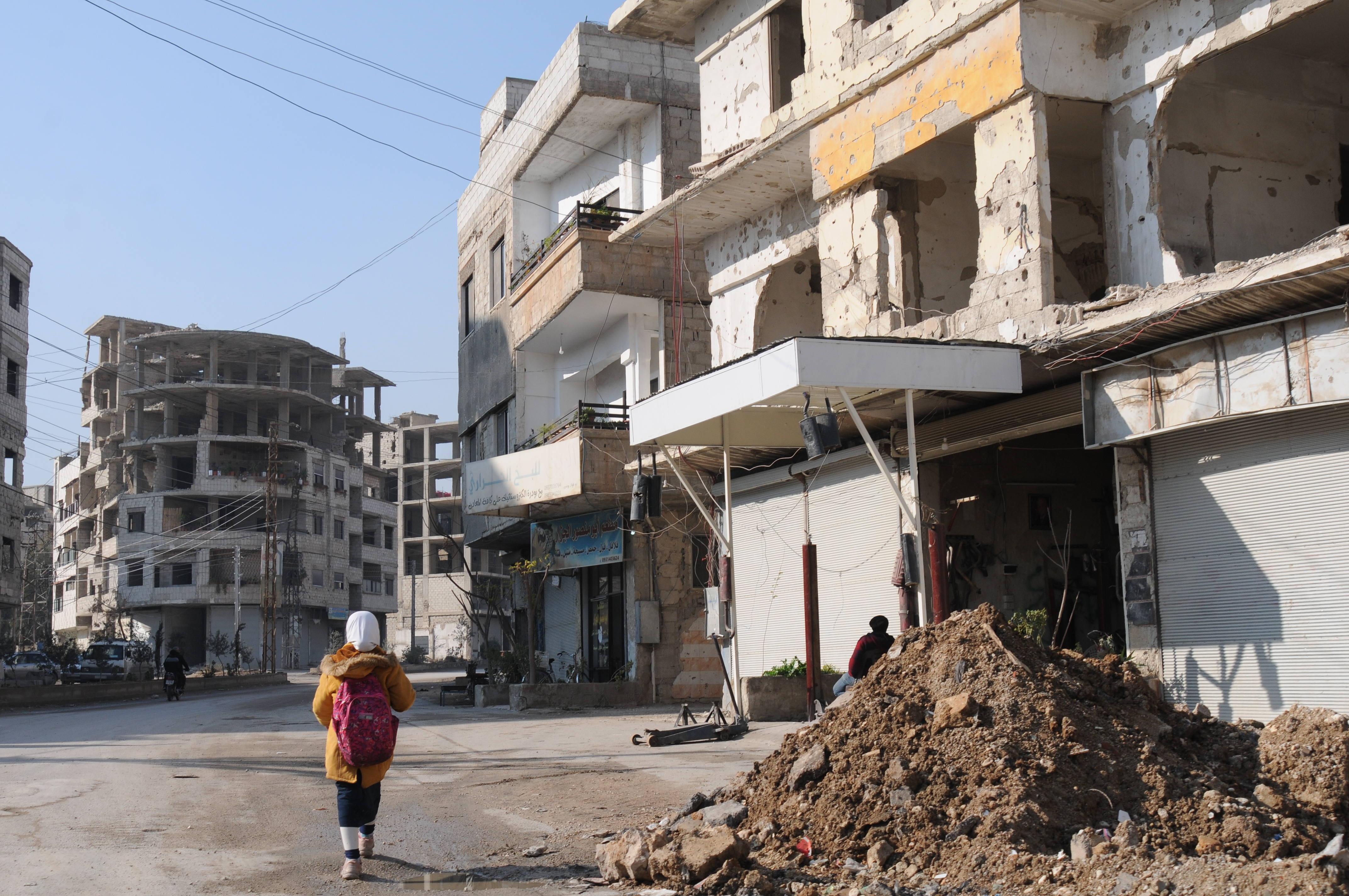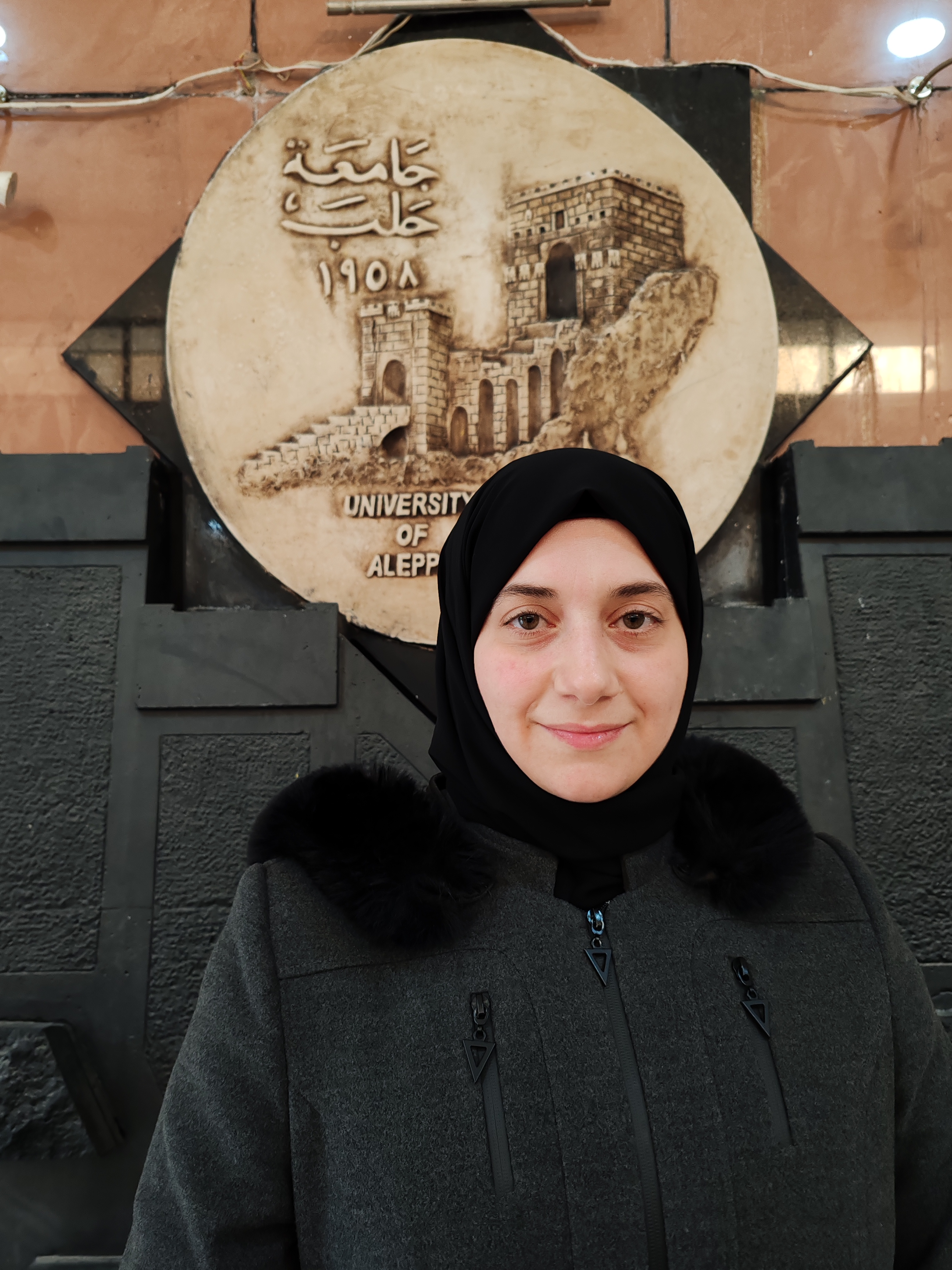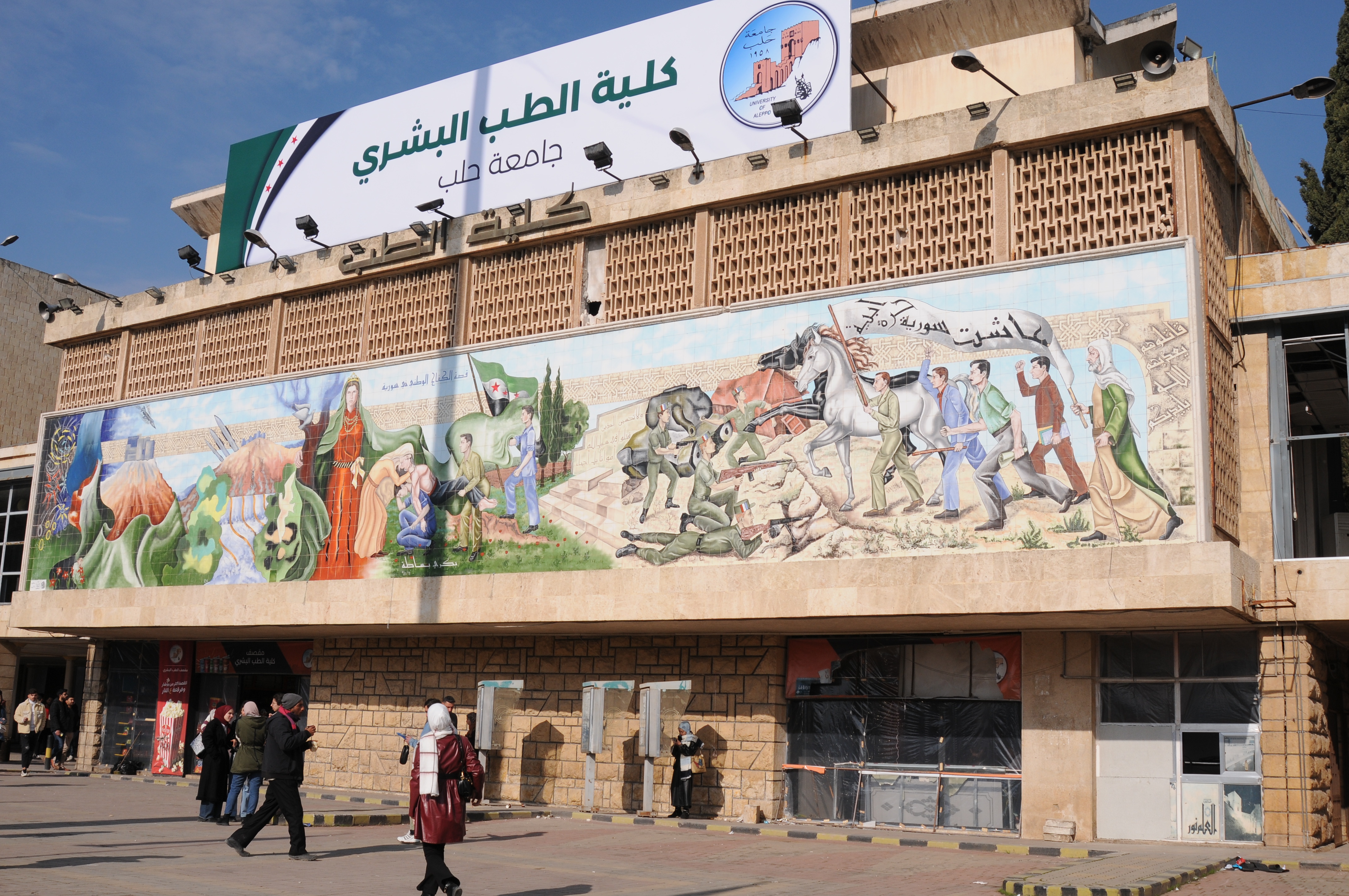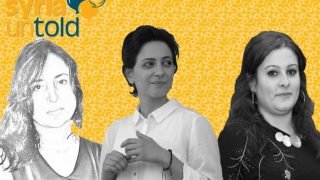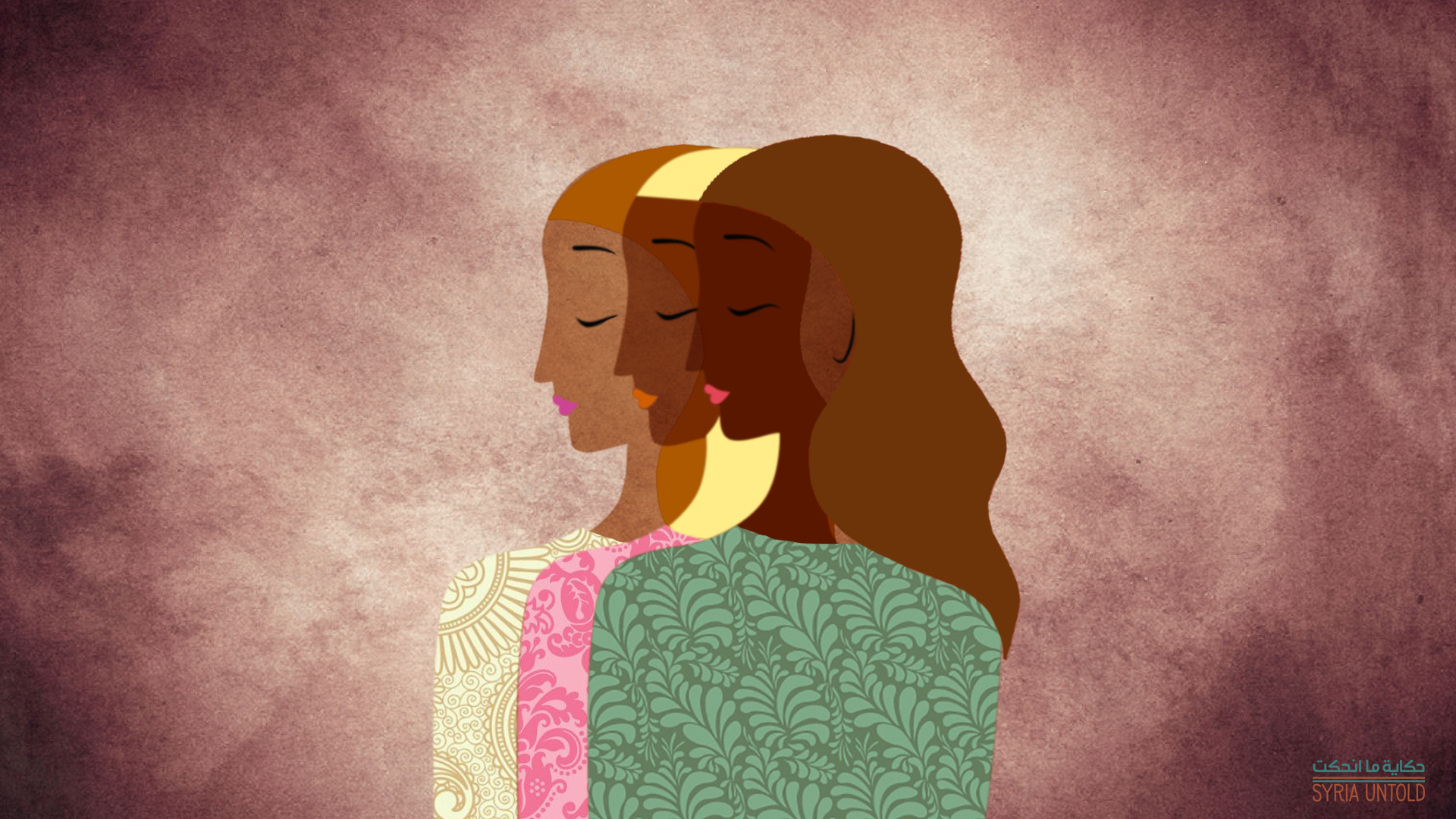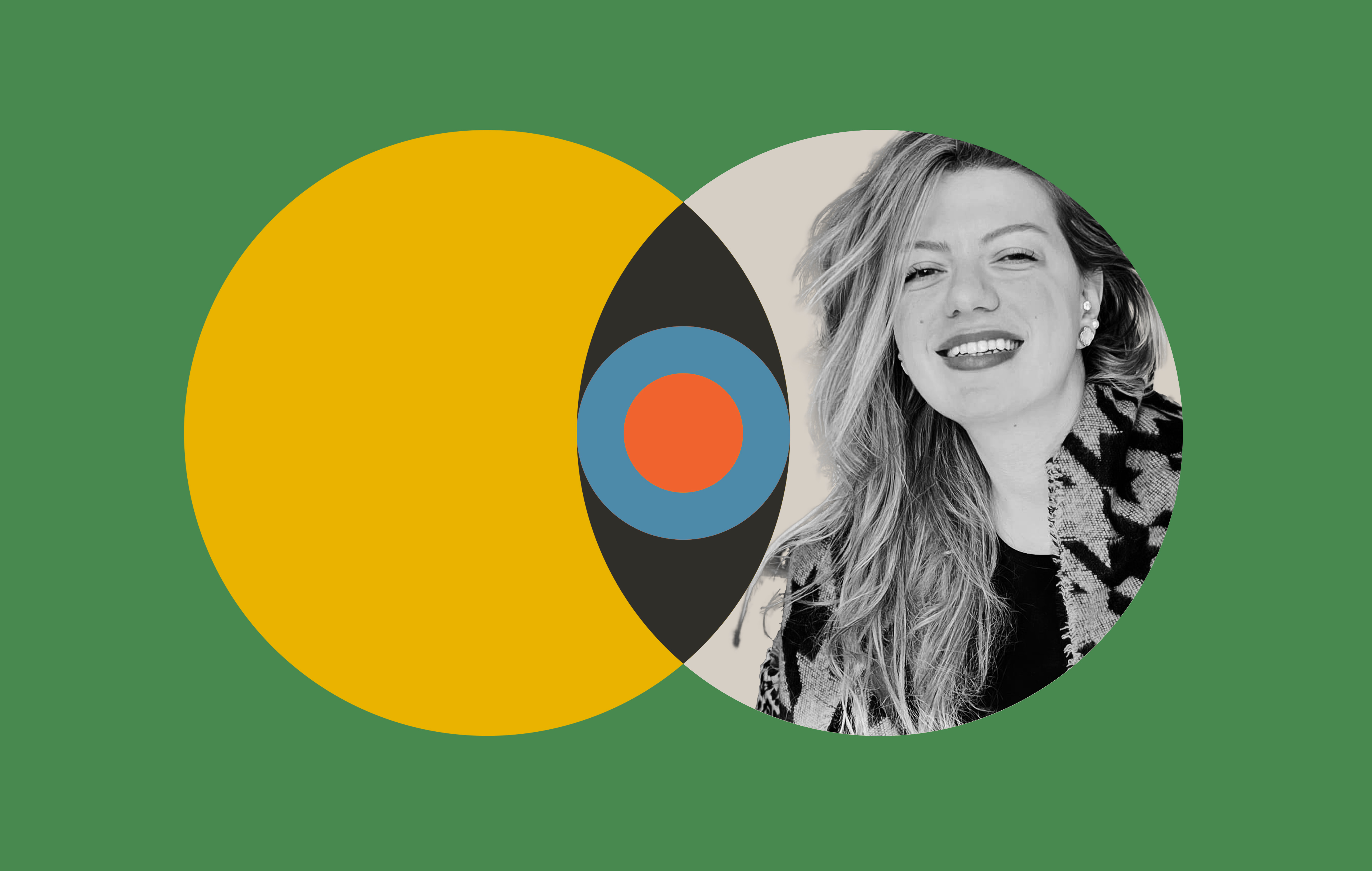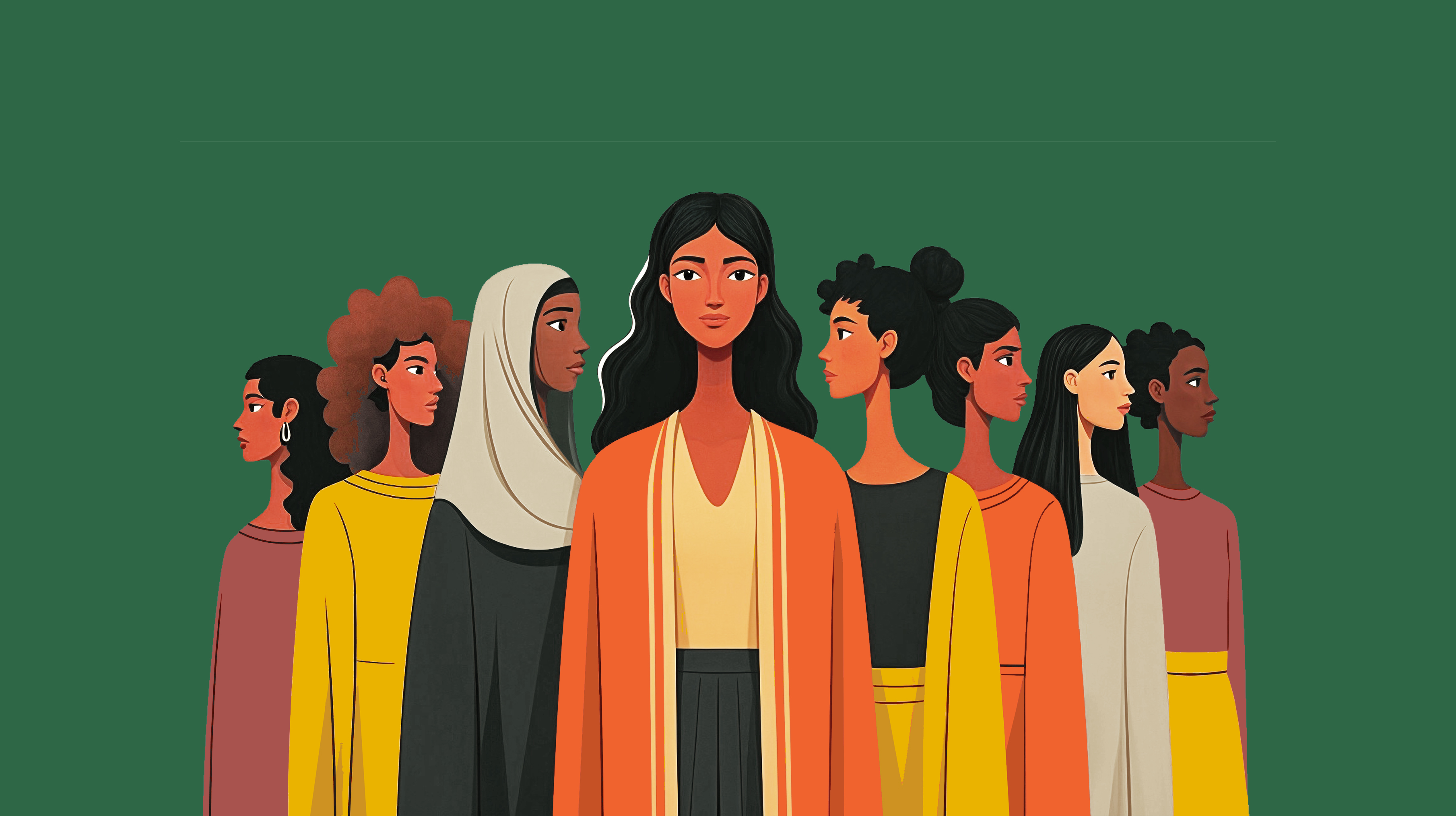“Our struggle has been an unarmed, daily struggle. We have been here taking care of the children and the elderly, keeping count of the victims and the forcibly disappeared, moving like ghosts to get food and medicine for the families and the rebels”. Um Ahmad, 35, lives with her elderly mother among the rubbles of Harasta city, in Eastern Ghouta, on the outskirts of Damascus. She smiles as she speaks on a sunny morning after days of rain. All around one can see the effects of years of dastardly bombardment, which changed the face of the city forever. “We never left, not even after the chemical attacks. We stayed at home, not even the siege scared us. When I think back to those days, I feel we were always OK because we knew we were on the right side, and among the few people who did not flee abroad, very strong bonds were formed”. Um Ahmad's account is imbued with feelings and idealism. In her words, the courage of women and civilians who have suffered the horrors of war on their skin are tangible. “We consider ourselves winners. We won the battle of life and freedom. I feel happy because I was able to realise my mother's dream, who wanted to stay and die here where she was born, no matter how difficult it would be”.
Um Ahmad's positive attitude and optimistic outlook is shared by women from other cities and life experiences, for whom the fall of the regime is absolutely the mother of all causes.
Many recall the images of Ghouta women bent in tears over the lifeless bodies of their children who suffocated in the August 2013 chemical attacks. Fourteen years later, the two words horriya and karama, freedom and dignity, which animated thousands of Syrians in the streets and squares of 2011, still seem to inspire the women of Ghouta to face the difficulties of the moment, without ever uttering the words lack, problems, deprivation.
Despite the ongoing violence, including the recent massacres of Alawites civilians in the Coastal region, and the deep grief felt throughout the whole country, from Harasta to Aleppo the large majority of people think that whatever will come after Assad will be better than Assad. In Harasta as in Aleppo. Every time news spreads of the discovery of a mass grave, families in the area go looking for fragments of truth, “For now, we limit ourselves to recovering bones and remains, we have no tools, no suitable places, and not enough staff to cover all the necessary investigations. Sometimes our usefulness is limited to rescuing family members who are sickened by the findings'. Arwa Hammud is a doctor from Aleppo, specialised in anatomopathology. She recounts that since last December, she has intervened several times together with the teams of the White Helmets, the civil defence, where human remains were reported. “Inside a well, the bodies of ten women were found a few weeks ago. They had been missing for about ten years. Those bodies may have a name because the story of those missing women is known, but they also deserve truth and justice. On the bodies, especially the charred ones, we cannot carry out examinations to see if there has been rape, but we have collected many complaints from women whose bodies have become a battlefield,” Dr Hammud adds bitterly.
She speaks softly, clutching her tea in her hands. Her hair is loose on her shoulders and her gaze contains a certain sadness. All around, in that cafeteria that has become a meeting point for students and doctors, there are those who play shetranj and those who smoke cigarettes and hookahs. “The Arab mentality is complicated, women do not denounce the abuse they have suffered because they are afraid of the social stigma, blame or contempt, even from their own families. This is why they remain silent even now that initiatives to bring past crimes to light are multiplying. In the orphanages there are many abandoned children, often born out of violence, mothers who are forced to abandon them”. Outside the windows of the café there is a bustle of people and vehicles as evening falls over the city.
The issue of justice is a cause within a cause in post-regime Syria. Thousands of new reports of disappearances, violence and abuse are waiting to be examined, just as many remain on stand-by. An important knot to untie now is related precisely to the responsibilities and professionalism that will be involved in this area. With the critics towards the new interim Constitution, the risk is that the already long waits for trials will come to a real standstill. “We are very worried, angry I would say, about how the justice issue is being handled,” says Farah B., a 40-year-old lawyer from Damascus. “Since December, the courts have been at a standstill. The trials are all suspended and no one gives us news. One day there are rumours of removing female judges and lawyers, the next day the news is denied. One day we are told that all laws will be repealed and that a religious justice will be imposed where sharia will not only be an inspirational text, but the model to be applied. This way we risk total chaos”. Every morning Farah B. meets colleagues at the courthouse and they are full of resignation and anger. In the capital, there are no visible signs of the war, but the wounds it has left are deep, hidden, and can be discovered in the words of those who for years feared for their lives and now fear losing rights and freedoms won over time.
The university of Aleppo has never stopped and the contribution women have made has been extraordinary. Not only in terms of training and logistics, but also psychologically. The university has become the home, the only window on the future for all students and especially for girls and lecturers.
"We see people who have been brought in by the new government who come from the countryside, who haven't had the chance to study, who have no skills and therefore shouldn't be here wandering around in offices they don't know. Here in Damascus, the situation is not comparable to Idlib, where the current government has had experience, and competent people are needed. Justice is a key sector and must remain autonomous. We are very worried as lawyers, but also as judges, especially us women,” says Farah B. as she runs a hand over the cream-coloured hijab matching her overcoat. In the elegant cafeteria where she meets with colleagues, the smell of coffee mingles with that of sweets and smoke. The day is gloomy and there are wet footprints on the floor. "We will not accept any regression on our rights and we are ready to give battle, but it would be a real disappointment if we were to be forced to fight to defend what even the regime has not managed to take away from us. It would be a betrayal of the ideal of freedom for which so many have fought and died”.
The traffic in Damascus is incessant and the streets are filled with cars with number plates from other Syrian cities. Since the fall of the regime, many families who had left have returned and others come to visit the capital, showing it for the first time to children born elsewhere. The sense of belonging and pride in one's origins finally find a chance to be expressed.
Syrian women did not take part in the military offensive that led to the conquest of Syria by the opponents, but in the social, economic, cultural, and legal spheres they played a fundamental role, making a silent and indispensable contribution.
While the justice sector remains paralysed and in chaos, that of education, fortunately, is showing positive signs. Among the first beautiful initiatives of the transitional administration was the invitation to female students, who lost years of study due to the war, to re-enrol at university and pick up where they left off. Hundreds of girls and boys have thus presented themselves at the country's various faculties to resume their education, interrupted ten years ago. Aya Aqqad is among them, re-registering at the University of Aleppo, now as a mature woman, wife and mother.
“I was a humanities student and was forced to quit in 2012, when the situation became very dangerous and I fled first to Egypt and then to Turkey. Now I have a lot of hope, I am sure that within three years Syria will prosper again”. Aya's is by no means an isolated case. Many boys and girls, who at the beginning of the conflict were in their early twenties, are now men and women who have to take their lives back into their own hands, amidst a thousand difficulties. In the university courtyard, one meets very young students, but also others, like Aya, who are more mature. They walk in groups, stop at the cloisters to buy tea and coffee or sweets, clutching books and notebooks to their chests. At the entrance to the university hospital signs of the previous government bombardment dating back to December 2024 are visible, which fortunately did not cause any serious damage. After the fall of the regime, the independence flag also stands everywhere in the former university building.
Rahaf al Kurdi, lecturer and director of the Technical Institute of Dentistry, Master of Maxillofacial Surgery at the University of Aleppo, never left her position at the university and has witnessed the difficulties many students had under the bombs. Even when hostilities had seemingly ceased, the city was littered with checkpoints, “Our students, as well as the teaching staff and technical and administrative staff, suffered undeniable psychological trauma, but they showed extraordinary will and courage.” Behind the doctor , frosty air streams in through the large window. The glass has been shattered by the last explosion, but she makes no notice of it. Her office is a bustle of students and colleagues discussing various topics. Sunny-faced, wrapped in a black leather jacket, the lecturer says she has never left the university, not even on the most difficult days. “The university has never stopped and the contribution women have made in this respect has been extraordinary. Not only in terms of training and logistics, but also psychologically. The university has become the home, the friendly meeting place, the only window on the future for all students and especially for girls and lecturers”.
Among the various meeting places that have reopened after their initial closure, due to fears about what would come after the fall of the regime, is the Café Friends in Homs. Noreen Abboud is an activist from the Christian neighbourhood of Hamidiya in Homs. She has a degree in tourism, but with the beginning of the war she had to reinvent herself. She has become an important reference for her community, a kind of spokesperson. ‘Many young people had to leave to avoid being forced to fight. There are only a few of us young people left, I hope they will all come back now so that the neighbourhood can be revitalised again and we can organise meetings, parties, weddings’. Noreen, green eyes and long black hair, now also works alongside journalists, reporting on the neighbourhood from the inside and trying to give voice to the many initiatives that are organised. With her sweet and at the same time sunny character she manages to bring together young and old. When she walks through the streets of the neighbourhood everyone greets her with affection. “We have to rebuild Syria together and create opportunities for women and young people so that no one wants to leave. Syria is beautiful and we want to return to welcome visitors from all over the world”.


